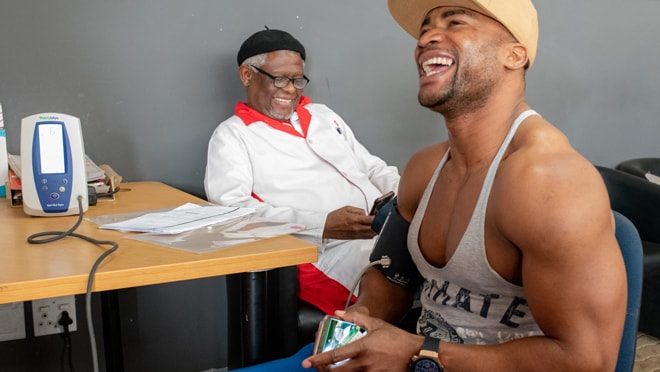At a glance
Voluntary medical male circumcision (VMMC) is associated with an approximately 60% reduction in the risk for female-to-male transmission of HIV. The U.S. President’s Emergency Plan for AIDS Relief (PEPFAR), through CDC and other organizations, has supported VMMC for HIV prevention in countries around the world. This is the story of one participant.
Jason's story

Thom Pierce 2018
At 7:30 am, 30-year-old Jason is among the day's first patients at the Winnie Mandela Male Health Clinic in Tembisa. He traveled from his home in nearby Kempton Park where nearly one in five adult males are HIV-positive. But Jason is HIV-free and plans to stay that way. On this day, he arrived at the clinic to undergo voluntary medical male circumcision—an intervention that can reduce his risk of getting HIV by up to 60 percent.
At 8 am, he was registered for the procedure and by 8:30 am, he had checked in at each of the stations of the clinic – the first stand-alone facility in the country dedicated to providing this service to men who seek it. Along the way, he took an HIV test, spoke with a counselor about critical post-surgical care, and learned about the risks and benefits of the procedure. By 9 am, the surgery was complete.
